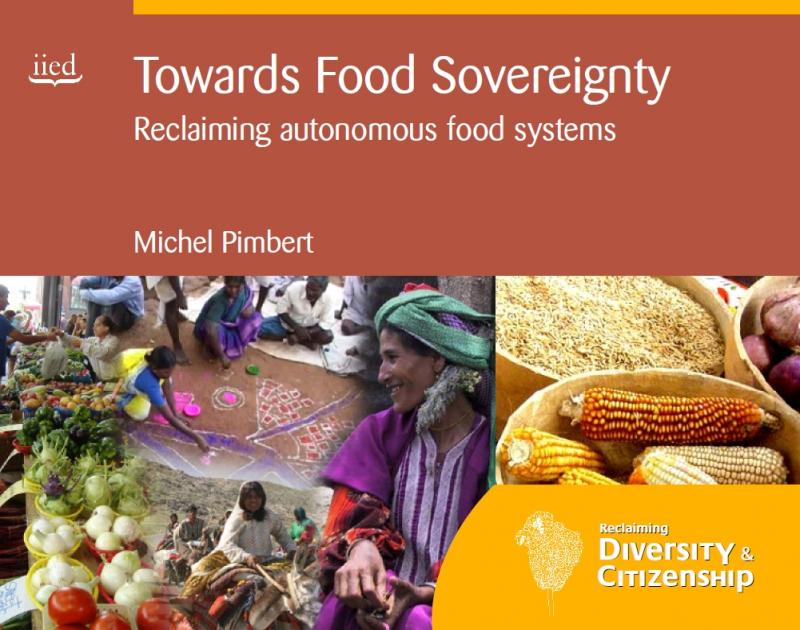Pimbert, Michel. “Transforming Knowledge and Ways of Knowing.” Chap. 7 in Towards Food Sovereignty: Reclaiming Autonomous Food Systems. London: IIED, 2009.
Food sovereignty and the development of locally controlled food systems based on bio-cultural diversity and principles of social justice all require radically different knowledge from that offered today by mainstream institutions (such as universities and policy think tanks). Transforming knowledge requires a radical shift away from the existing top-down and increasingly corporate-controlled research system to an approach which devolves more responsibility and decision-making power to farmers, food workers, and consumers/citizens for the production of knowledge in the natural and social sciences. The whole process should lead to the democratization of research, diverse forms of co-inquiry based on specialist and non-specialist knowledge, an expansion of horizontal networks for learning and action, and more transparent oversight. A two-pronged approach to knowledge transformation and more power-equalizing research is proposed here:
i) Democratizing agricultural research and increasing funding for public research. Institutional innovations and methods for deliberation and inclusion are needed to create safe spaces and processes that allow more direct citizen participation and pluralism in defining upstream strategic research priorities, deciding on the allocation of funds for food and agricultural research, validating knowledge, and assessing risks.
ii) De-institutionalizing research for autonomous learning and action. Transforming knowledge for food sovereignty depends on strengthening self-organizing research and horizontal networks of farmers and other citizens who produce knowledge in the context of their farming practices, fields, landscapes, and the many “living campuses” where they derive their livelihoods.
(text by Michel Pimbert)


